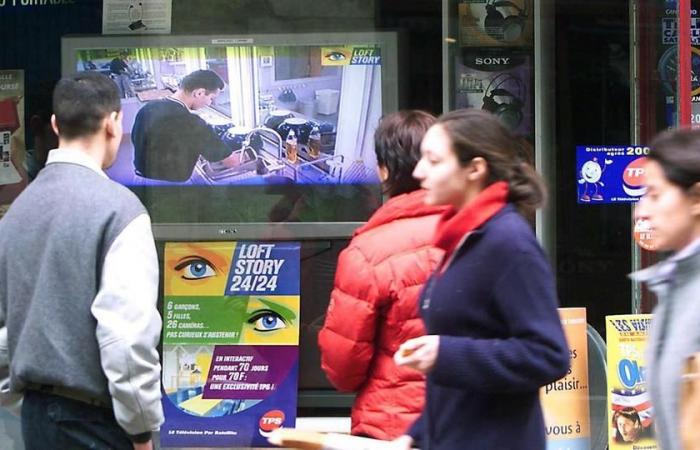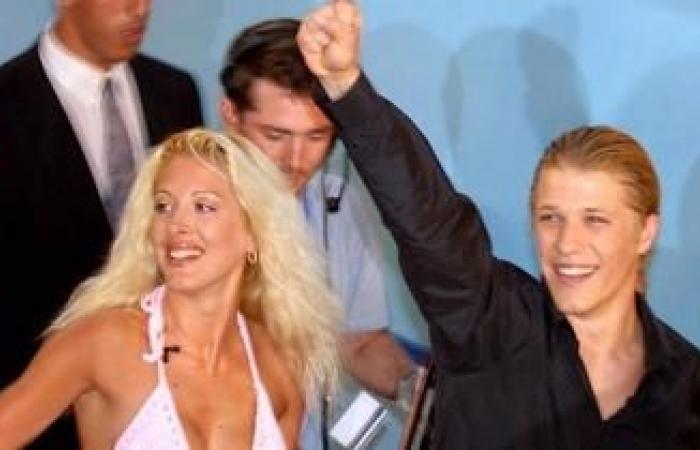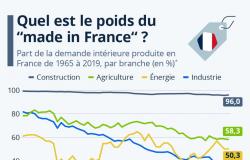On April 26, 2001, Loft Story appeared on the small screens. The first reality TV show, it will change television programs forever.
A program adapted from the Dutch concept “Big Brother” launched in Holland in 2000 by Endemol, Loft Story had the effect of a UFO when it landed on April 26, 2001 on M6. With her, reality TV burst into the PAF for the first time.
Eleven anonymous singles were going to enter a 225 square meter loft in Plaine-Saint-Denis, to be filmed 24 hours a day under the eye of 26 cameras and recorded by 50 microphones. After ten weeks, with the only contact with the outside world being the production team, including a psychologist, Christophe and Loana will be crowned winners after the others have been eliminated by their roommates or by viewers called to vote by telephone, a principle still unpublished.
At the time, the launch aroused an unprecedented wave of curiosity. The show hosted by Benjamin Castaldi accumulates audience records with peaks of 7 million viewers on prime evenings. Whether they love it or hate it, no viewer is insensitive. And the most keen don’t miss a minute of what’s going on in the house by following live on the internet and on TPS, from the daily washing up to Loana and Jean-Edouard’s frolics in the swimming pool. Forty-eight hours after the launch, the two young people, tipsy, reached a milestone in the heated swimming pool and then the dormitory, where their antics were filmed by infrared cameras. The images will circulate so quickly on the Internet that they will make everyone aware of its viral power.
“The younger generation takes power”
“Between the demonstrations, the political positions, the insults, the fascinations, the fans… All crystallized over two and a half months of broadcast. The final had an audience of more than 7 million (with a peak of 11.7 million when Loana and Christophe’s victory was announced). And then there was the climb up the Champs Élysées. No one had done that since the 98 World Cup,” commented Alexia Laroche-Joubert, in an interview published on October 17 in Télé 7 Jours, on the occasion of the arrival of the “Culte” series on Prime Video , which goes behind the scenes of how the program arrived 23 years ago.
Through this series, “what we wanted was on the one hand to show the social phenomenon and on the other hand the fact that this program changed the face of television. What also interested us was to show, through my character as a young producer, renamed Isabelle in the series, the social struggle and the family divide: at the time of the Loft, there were on one side the parents who found the program shameful, and on the other, young people who wanted to watch it at all costs. It was a takeover of power by the young generation on Mom and Dad’s television,” considers the producer, who set up the project with Endemol and M6.
The success of Loft Story is also a story of perfect timing with the times. Proof of the craze for the sensational as for the little things of everyday life, in 2001, there was the boom in webcams and videos, and a chat on a sofa can generate millions of views… The appetite for this type of video is starting to become monstrous, so why not use it on air?
empty notoriety
In 2001, we want to see but also be seen… Although in France, no one yet knew about reality TV, the production had received no less than 13,000 applications from young people ready to do anything to be locked up and filmed, as producer Angela Lorente reports in the series “Le Loft, un Big Brother à la française”, to listen to on France Culture.
Specificity of “Loft Story” compared to “Big Brother”: the show aimed to “unite two candidates in a love story”. “All these candidates thought they were entering a one-shot where they were going to meet someone… They didn’t even know which program they were going to enter,” recalls program editor Angela Lorente. During the casting, psychologists question them about their intimate wounds and the most stubborn ones are directly kept. The profiles are in fact rigorously chosen to best match the “scenario”.
“People who had nothing to do with each other and who should never have met, that was the great strength of the Loft, it was to bring together people very different from us,” believes Alexia Laroche-Joubert, who says she fell in love with “Big Brother,” with what would become a genre: reality TV. When I was little I wanted to be a director, a psychologist and a cop. So I studied law to be a cop and in the end with the Loft I did everything: I filmed people, whom I psychoanalyzed, while locking them up.
Despite the criticism, those who were anonymous when they entered the show emerged as stars. And although the spontaneity which made the first season fresh was already no longer there in the next one, too late, the faucet of notoriety running dry, of self-presentation – everything that we find in social networks today – was open.
Having become a polymorphous genre, reality TV has since revolutionized the PAF – some will say for the worse, not to mention the aftermath which is severely disillusioning for certain former candidates.
Omnipresent, it brings together under the same name confinement programs, coaching programs and competitions for young talents. And although consumed in all sauces and recycled to the dregs, it does not seem ready to leave the post.







